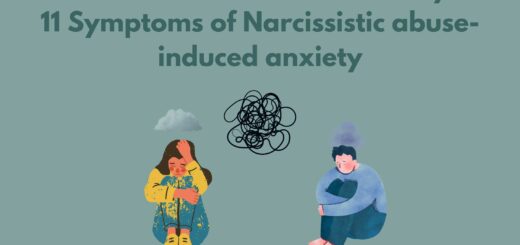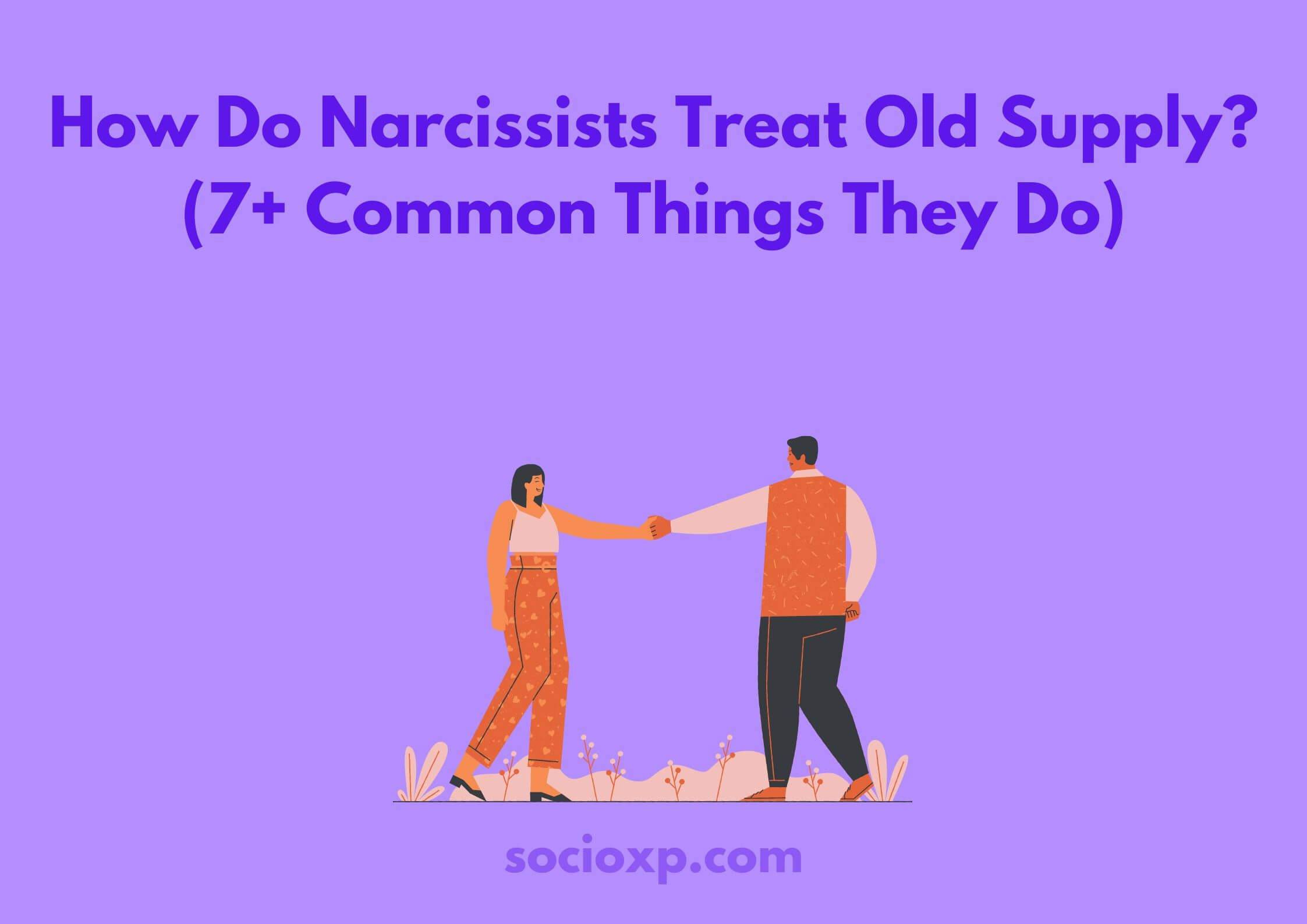How To Tell A Narcissist That They Are Narcissists? (Without Making The Situation Worse)
How To Tell A Narcissist That They Are Narcissists? Is it even possible to confront a narcissist without expecting any drama? Is confronting a good idea while dealing with a narcissist? Usually being hostile is a narcissist’s trait, what reaction should you expect when you are being hostile instead of suffering the hostility? Does confronting really work with a narcissist?

It can never be easy to tell a narcissist that they are narcissist without making the situation difficult. But there are a few ways that you can try while confronting a narcissist. In most cases, narcissists may not be receptive to criticism or feedback that they perceive as negative or insulting. Let us know some ways to “How To Tell A Narcissist That They Are Narcissists?” without creating much drama or without making the confrontation feel like a serious confrontation keeping it simple and not making it seem like an insult or some insecure projection.
Confrontation is actually healthy when you have a normal relationship with an understanding person or partner. You may think confrontation may ruin your relationship, but in reality, confrontation makes a relationship stronger, as you get to know the truth and point of view of the other person. Confrontation makes the relationship more transparent and builds trust. But when dealing with a narcissist, confrontation is always risky and a not-so-good idea unless you may decide to leave them for good riddance. Narcissists run away from the truth and they do not like being told about reality. Narcissists are not good while dealing with truth, feelings, vulnerabilities, and confrontations.
Should you tell a narcissist that they are a narcissist?

Telling a narcissist that they are narcissist may arouse their rage
Confrontations may arouse their wrath and they might make a scene. They would be loud and volatile about being confronted. They believe that they’re perfect and the world revolves around them fulfilling their wishes. So rather than confronting them, you may either choose to ignore or just side-track the topic or may even leave it altogether. You may need to find the right timing, right situation, and right set of words if at you decide to confront a narcissist.
If you wish to end things with a narcissist then telling the narcissist that they are narcissist might work out well for you
If you want to end things with a narcissist you may choose to confront their toxic behavior or any other trait that annoyed you. If you genuinely care for a narcissist then also you may want to choose to confront them. You may also leave confronting whatever is bothering you. But if you plan to continue the relationship confrontation may not be a good idea. Though there are a few options you can choose from after confronting a narcissist.
Confronting with a polite or understanding tone might be of some help. Twisting words to be more polite than genuine or reading the mood of the room may also help you.

When making a confrontation with a Narcissist, the most important or key aspects are the correct timing, the correct situation, and the correct pair of words. The correct Timing means when they are satisfied with you or your relationship seems to be in a good phase. The correct situation means you should not confront while a narcissist is going through a bad time like a demotion from a company position, or deporting from a job, or going through a not-so-good phase of life.
Narcissists might predict it as a sentence of threat to their weak self-esteem when you decide to confront them
Narcissists have this pre notion that they are perfectly casted human beings and nothing can be wrong with them or there are no such things that people might not like about them. They feel that they are kings and queens of their own world and that everyone else around them is just fulfilling their parts according to the narcissist’s wishes. But this is all their fantasy world, as and when someone points out that they are suffering through a mental health disorder, and that they are not what they imagine, this immediately shatters their fragile self-esteem and weak ego.
Narcissists have fragile egos that would not allow them to believe or process the confrontation. They might not take the information well because obviously, it is contradictory to their personal beliefs. They would start making scenarios in their mind and would say things that you might not want to hear. They might think or say,
“Do not project your narcissistic thoughts on me; clearly, you are the narcissist here.”
It seems you are unhappy with your life and that is why you are taking it out on me because you cannot take anymore.”
“Your confrontation makes me think you might be jealous of me!”
“You see where your insecurities about yourself are taking you? Blaming others for your narcissistic behavior is not good.”
So before deciding to confront make sure to have a pep talk with yourself first like,
What is the intention or goal here when you wish to tell someone that they are narcissists? – Do you really care about the person?
Do you wish to get justification for all the miseries that you have suffered because of the narcissist? – Because that is not going to happen.
Do you really wish good for them and want them to change? – Because this might ruin your expectations as narcissists never change.
Are you really willing to do this just to get rid of them? – Because confronting them might actually work.
The point here is no matter what you try to say to narcissists while confronting them, they are most probably going to take it as if you are ripping their self-esteem and contradicting who they are in reality.
So coming to the question, “Should you tell a narcissist that they are a narcissist?” The answer to this question holds duality as some people believe that confronting is necessary while some do not. Some experts suggest that confronting a narcissist can be done but with caution, keeping in mind certain points. So make your choice either to confront or not based on these considerations. Let us know the considerations,
How To Tell A Narcissist That They Are Narcissists? (Without Making The Situation Worse)
Instead of directly saying, “You are a narcissist”; try saying “You are acting like a narcissistic person”.
Directly spilling the tea might not help here. Twisting the words might be of some help here while telling a narcissist that they are the narcissist. Indirect confrontations might seem helpful many times.
Here below let us know some ideas on how to confront a narcissist,
1. Using humor or wit
This is an indirect way of confronting a narcissist but might work out best for you. It can always be helpful to use humor around a narcissist as they might take the confrontation lightly or may not turn the situation hostile. Using wit and humor might lighten the mood, disarm the difficult behavior of the narcissist, and also might show that you are calm and composed.
2. Using Diplomacy – Asking clarifying questions
Using diplomacy and asking witty and clarifying questions is another way of indirect confrontation. When a narcissist makes unreasonable demands, or asks you to fulfill some demands like, (doing things their way, manipulating your thoughts, catering to their selfish needs, etc.). You can counter these demands with reasonable questions like,
“Does this sound fair to you?”
“Are you asking or informing me?”
“Does this demand seem reasonable to you?”
3. Separating the Behavior from the person
Separating the narcissistic behavior from the person might actually point out a person’s narcissism and allow that person to reflect in time. Do not just tell a narcissist that they are a narcissist, instead be specific about the behavioral patterns and some traits that connect them with narcissism or narcissistic behavior. Use language that is tactful and respectful instead of using coarse language. Do not just go on labeling the narcissist as a “Narcissist”.
4. Asking straight up if the person is a narcissist
Sometimes asking directly might make things clear for both you and the narcissists. Many narcissists prefer to openly admit that they are indeed narcissists and that they’re proud of it.

5. Using Empathy and understanding
When confronting a narcissist, it is important to try and understand where they come from. They may have a history of feeling insecure and might have suffered from childhood trauma, which is why they seek validation and attention from others.
6. Offer solutions or suggestions
Rather than just pointing out the problem, offering some solutions and suggestions for how the person can work on their behavior. The narcissist may become more receptive to constructive feedback if they are being offered a way to improve.
7. Knowing when to disengage
If the narcissist becomes defensive or hostile, it may become necessary to disengage from the conversation. It is better to leave the situation than to escalate it into an argument or conflict. Let the person know that you are willing to revisit the conversations at a later time, but that’s important to take a break for now.
Why would you choose to tell a narcissist that they are a narcissist?
When you discover that someone close to you is suffering from NPD (Narcissistic Personality Disorder), the first thing you think of is to tell them or confront them and heal yourself through their repentance. But is it even possible? Should you confront a narcissist about this? You would wish to get justification for all the miseries that you have suffered because of the narcissist. Vilifying a narcissist’s toxic behavior is important so that they also get a taste of their bitter deeds, is what you feel, but that sounds a little far-fetched as expecting repentance through confrontation is not a narcissist’s cup of tea.
A Narcissist seldom changes. They would have no regrets about hurting you or being the reason for your miseries, as a narcissist has no feeling of repentance or remorse. Instead, they would be all pent up and agitated about the confrontation that you just made.
Everyone deserves mental peace and happiness. So sometimes you need to act against a narcissist when you are done with their constant manipulation and try to confront them at some excellent timing. By doing so you might feel content for a while and also hope that they might change. But do they really change? Do not seek revenge for anything though just confrontation may be enough, as narcissists can stoop low and might take revenge for pissing them which can jeopardize your mental peace, health, and even happiness.

Reasons for Choosing to Confront a Narcissist – Why should you tell a narcissist that they’re narcissist?
- Confronting a narcissist may be beneficial to both, you and them. For you, it might give a feeling of contentment that you were able to state the reasons for their toxic behavior. For them, it might be eye-opening as they might not be aware completely or hesitate to believe that they might be suffering through any mental health issue. This might be one of the ways to bring their attention to their mental health issue and present it clearly.
- You might confront them out of concern. You might genuinely be wishing that they might change or improve their toxic behavior which can be beneficial for both, them and you.
- By confronting you might be able to understand their point of view also, through the counter-arguments they might present for the confrontation.
- To show them the path to change. Out of genuine care and concern, you might really wish from the bottom of your heart that they might change if you confront them.
- To seek your revenge. Sometimes you need to act against a narcissist when you are done with their constant manipulation and try to confront them at some excellent timing. By doing so you might feel content for a while and also may feel happy.
- To make them realize their mistake and hold them responsible for being such a pain in the neck.
- To regain control of your life. A Narcissist is an individual who is excessively obsessed to have control over all situations like financial situations, etc, and individuals in their life. So by being with them you might even lose your self-identity and self-control.
- You almost lose your self-worth, self-love, and self-respect, and most importantly you lose yourself when being with a narcissist, so to gain self-worth, self-love, and self-respect you might confront.
- Gaining equal importance, respect, equality, and a chance to build a better relationship, you might make up your mind to confront.
- When you have a permanent relationship like married, engaged, or looking forward to spending your life with them, confronting them might be your best option.
- If you wish to build a reliable relationship together, you might consider the option of confronting.
Inference
In conclusion, telling a narcissist that they are a narcissist can be a delicate topic and situation. It is important to approach the conversation with empathy, details, and constructive feedback. Offering solutions and suggestions for how the person can improve their behavior, see boundaries if necessary, and remain calm throughout the conversation. If the situation becomes too heated, also know when to disengage and revisit the conversation at a later time.
- What to expect when the Narcissist knows you know? – 11 Potential Reactions - November 6, 2025
- How does a Narcissist respond to No Contact?: 10 Plausible reactions - November 6, 2025
- The Inverted Narcissist: Traits that Describe Them - November 6, 2025


